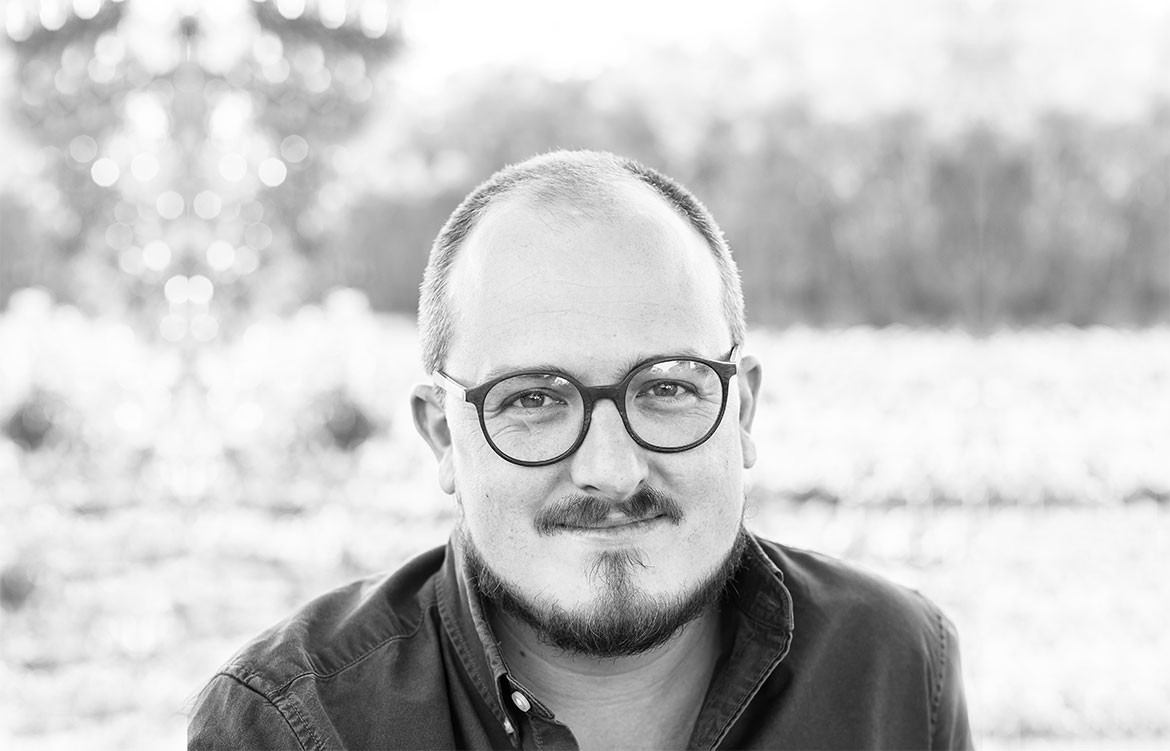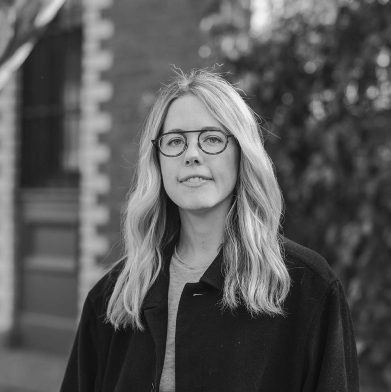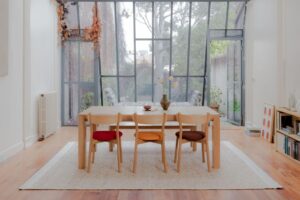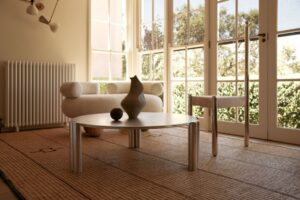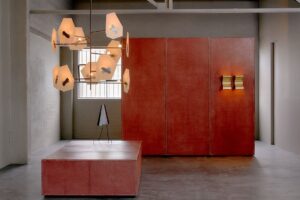First up, Phillip Nielsen – we got to pin Phillip down before he jetted off for the 2019 Dulux Study Tour! Phillip is the design director of Regional Design Service, a young practice that is breaking new ground in Corowa. Here Phillip shares what it’s like to practice regionally, what his design process is and a building that has left an indelible mark.
What inspired you to study architecture?
From a young age, I was curious about how buildings and cities were built with a real interest in all the different ways a house could be planned. From the age of six, we lived in the first home of a housing estate in Townsville and I would wander through the various construction sites trying to work out how everything went together.
What is life and work like in regional Australia, what are you finding that’s different and what might people not be aware of?
There is a cliché that ‘people in the country move slower’ and that you can’t expect things to change so fast in regional Australia. What I have found since moving back to the ‘country’ is that this sentiment could not be further from the truth – in fact, I am starting to believe it is the city that is in the slow lane… how was your commute today? Many of our residential clients are current or former farmers and when you see how much innovation is taking place to responsibly manage the impacts of climate change, drought and rehabilitate the land it is truly remarkable.

Morgans Lookout, competition. Render by Regional Design Office.
What’s something you wish you had known when you started your career?
One of the best pieces of advice I was given as a young graduate was ‘don’t become good at something you don’t want to do’. It made absolute sense but I wish I had known how I could use architecture to give back to the community earlier.
What inspires you?
I have lost count of the times I have been stopped in the street and thanked for the contribution we are making to our rural community. The happiest moment was having a local woman show me how a Kartell Generic C chair could be lifted and balanced on the edge of a table to then mop the floor. The look on her face when she realised we specified it for this exact reason and that good design could make life easier was priceless. Reflecting on these moments inspires me to get into the office every day and make meaningful change through design.

Docs, a local café in Corowa, designed by Regional Design Service. Photo by Georgie James.
Can you talk through your design process – is it always the same or different, do you hand draw, research, come back to old ideas?
Our design process is founded in talking about how and why we’re doing something. One of our first residential clients approached us with the brief for a Mid Century Modern inspired home on their rural block. Rather than replicate the ‘style’ of MCM houses we worked with our client to explore what influenced the era from the Eames moulded ply leg splint through to construction techniques of the Case Study Houses.
How do you see the design industry changing?
Leaving Melbourne and viewing the industry from afar has offered time to contemplate and reflect on my experiences. I’m comforted to see more of the industry standing up to unpaid work or internships. As a student, I dreamt of working for one of my design idols but being from a lower socio-economic background I would have never been able to afford the luxury of being unpaid. I believe the industry is moving towards more equitable practice.

Federation Cinema, Corowa, designed by Regional Design Service.
What is your favourite building/interior fit-out in the world and why?
The Eddie Koiki Mabo Library at James Cook University by James Birrell is one of the first buildings I fell in love with. I was 11 when I first visited the Library on a grade seven trip to use the Internet for the first time – I researched the Spice Girls on 1997 dial-up! The library is formed from board-marked concrete with the most incredible arched forms that truncate from diamond-shaped columns into beams for the mezzanine level of the library. I love going back to the library when I visit home.
Which projects are you most proud of?
I’m most proud of the opportunities we have to engage and share our skills with various community-led projects around regional New South Wales and Victoria. We are currently working pro-bono on a masterplan for a village of around 100 residents with the aim to inspire current and past residents to get involved more in their hometown and attract tourists to the region.

Library at the University College of Townsville, Queensland. The library was designed by James Birrell and constructed in 1968. The building later renamed the Eddie Koiki Mabo Library, and The University is now known as the James Cook University. Collection 6523 RAIA photographs, 1968-1975. John Oxley Library, State Library of Queensland.
Stay tuned for more profiles from all of our Ambassadors, as well as their top picks and insights into Saturday Indesign. Register now for SID, 22 June.
Saturday Indesign
saturdayindesign.com
We think you might also like Movers & Shakers: The Saturday Indesign 2019 Ambassadors


